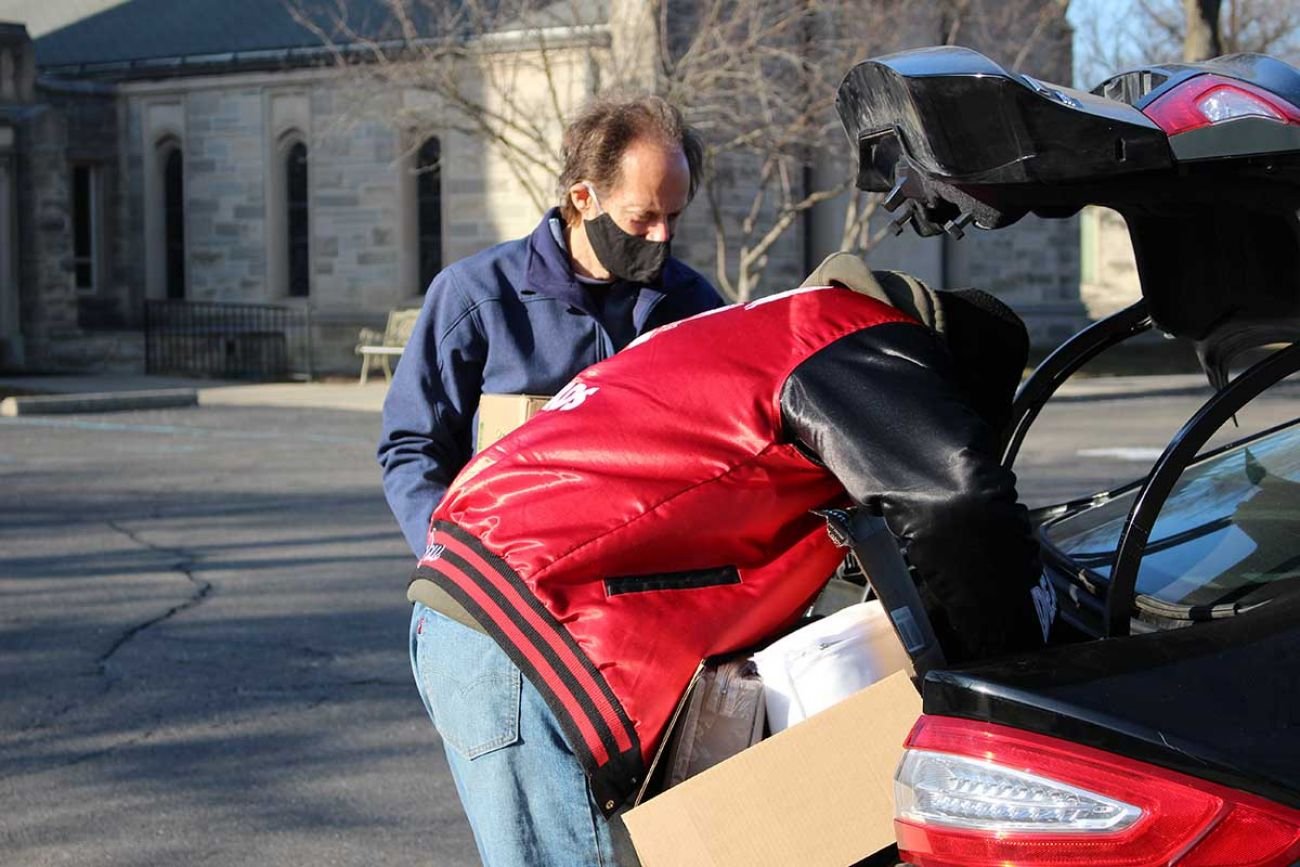COVID raged in Michigan prisons. Life outside isn’t easy either for parolees.
ROYAL OAK — After 11 years in prison, Robin Roberts returned to an empty home in Detroit this winter. He had an inflatable mattress, one set of clothes and thousands of dollars in tax debt from the house.
Things already would have been different upon his return, but the COVID-19 pandemic accelerated the digital revolution, pushing keys to survival for parolees to the internet. Everything from job applications to Secretary of State bookings were online, confounding the “old school” Roberts.
He said he had to borrow his sister’s cell phone just to send text messages.
“I took (the coronavirus) serious when I was in, but I did not know how serious it was until I got out and actually started trying to get things done,” Roberts told Bridge Michigan. “And my thing is, I’m ready to start living again. Prison for me was just temporary.”
Experts say the global pandemic has made a challenging transition harder for those leaving prison. Low-wage jobs became scarce as industries shut down last year. Services moved online, creating obstacles to aid programs, including federal stimulus checks that were based on prior tax returns.
Michigan paroled 8,000 inmates last year, and nonprofits and other groups are stepping up efforts to help them succeed because experts say the first six months to two years after prison is critical. Those who secure jobs, housing and other basic needs early in their return are less likely to end up back in the corrections system.
“Returning during COVID I think has been a huge challenge for people,” said John Cooper, executive director of Safe & Just Michigan, a nonprofit that helped steer a series of recent criminal justice policy reforms that aim to reduce mass incarceration.
“Basic things like the Secretary of State's office being closed. How are you going to get a driver's license if you can't go to the Secretary of State?”
Paroles remained consistent from 2019 but represented a higher ratio because of the state’s declining prison population of 33,000. The parolee tally doesn't include the release of low-level offenders from county jails.
Michigan’s recidivism rate has dropped to an all-time low, down to 27 percent in 2017 from a peak of 48 percent in 1998, and experts say increased opportunities are essential to continue the trend.
It’s not yet clear how COVID-19 will affect recidivism rates. Initial data suggests overall crime rates fell in 2020, but homicides — which produce longer sentences — spiked in several cities, including Detroit, Grand Rapids, Lansing and Flint.
Parolees left a prison system facing significant health threats, as COVID-19 infected more than 26,000 inmates and killed 139 since March 2020.
The state urged social distancing and other mitigation measures, but “prisoners got a giggle out of it” because that was impossible inside the confines of a prison, said Roberts, who added “bad choices” led to his 2007 conviction for assault with intent to murder.
“Here it says you want us to stay 6 feet apart, but bunking one on top of another, I’m less than 3 feet to this person,” he said.
Set up to fail?
The coronavirus pandemic created a clear need to do more, so Bob Schwartz of the Here to Help Foundation in Royal Oak year launched the Returning Hope to Returning Citizens program to provide emergency grants to parolees.
The program works with Oakland and Wayne county parolees and provided 797 emergency grants to recently released inmates, a total of $310,894, according to the foundation.

